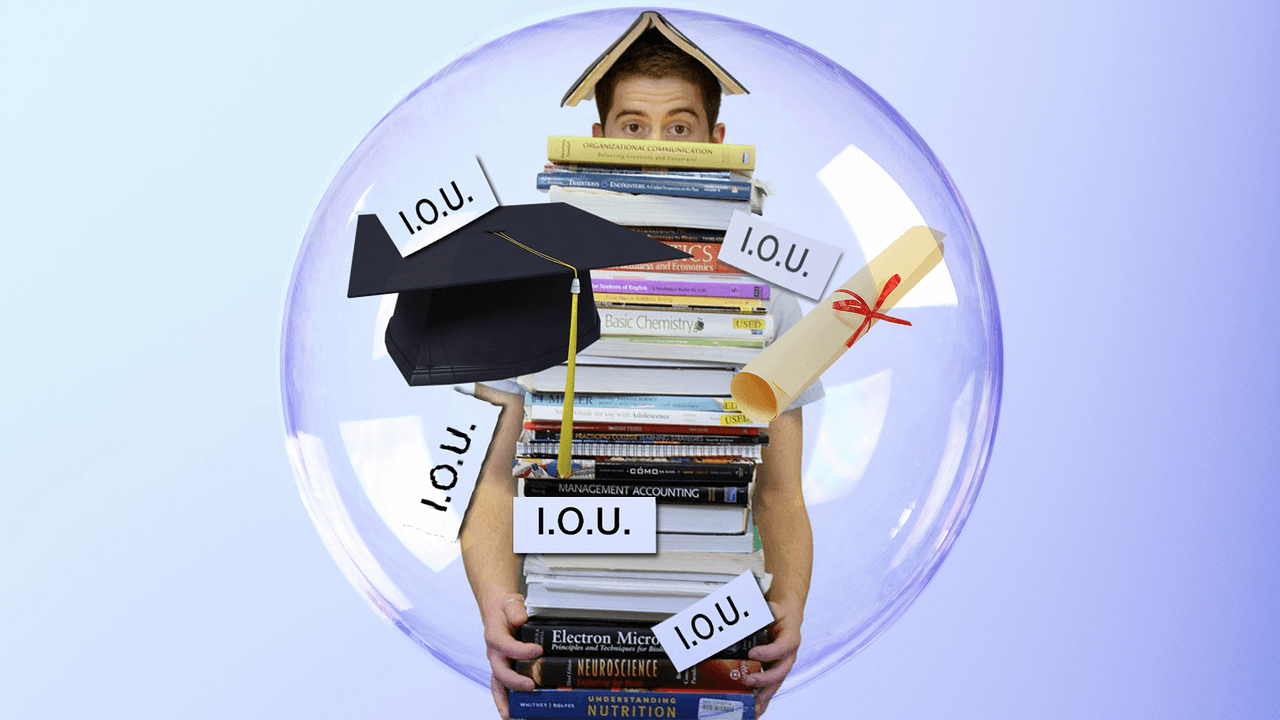Student-centric advice and objective recommendations
Higher education has never been more confusing or expensive. Our goal is to help you navigate the very big decisions related to higher ed with objective information and expert advice. Each piece of content on the site is original, based on extensive research, and reviewed by multiple editors, including a subject matter expert. This ensures that all of our content is up-to-date, useful, accurate, and thorough.
Our reviews and recommendations are based on extensive research, testing, and feedback. We may receive commission from links on our website, but that doesn’t affect our editors’ opinions. Our marketing partners don’t review, approve or endorse our editorial content. It’s accurate to the best of our knowledge when posted. You can find a complete list of our partners here.
Why Did My Credit Score Drop After Paying Off My Loans?
 By
Kayla Korzekwinski
By
Kayla Korzekwinski 
Kayla Korzekwinski is a Scholarships360 content writer. She earned her BA from the University of North Carolina at Chapel Hill, where she studied Advertising/PR, Rhetorical Communication, and Anthropology. Kayla has worked on communications for non-profits and student organizations. She loves to write and come up with new ways to express ideas.
Full BioLearn about our editorial policies

Maria Geiger is Director of Content at Scholarships360. She is a former online educational technology instructor and adjunct writing instructor. In addition to education reform, Maria’s interests include viewpoint diversity, blended/flipped learning, digital communication, and integrating media/web tools into the curriculum to better facilitate student engagement. Maria earned both a B.A. and an M.A. in English Literature from Monmouth University, an M. Ed. in Education from Monmouth University, and a Virtual Online Teaching Certificate (VOLT) from the University of Pennsylvania.
Full BioLearn about our editorial policies

Student loan lenders want students to pay off their debt, so it can come as a surprise when your credit score drops after completing payments on a student loan. Why does your credit score drop when you pay off debt? There are many factors that contribute to your credit score, and changes to them can make it decrease. Continue reading to learn more about why paying off loans can cause your credit score to drop!
Also see: Do student loans affect buying a house?
Student loans and credit score
The Department of Education defines a credit score as “a statistical number that evaluates a potential borrower’s creditworthiness.” A person’s credit score reflects how likely they are to repay their debts on time. A credit score is calculated using factors including credit mix, credit utilization, and account age.
Student loans affect credit in both positive and negative ways. Consistently making payments on student loans can build a good credit history, and just having student loans contributes to your credit mix.
It may come as a surprise that paying off a student loan can decrease your credit score. This is because the factors that are used to calculate the score have changed.
See also: How do student loans affect credit?
Credit mix
Credit mix makes up 10% of your FICO credit score. It refers to the types of credit you have. There are two types of credit: revolving and installment.
Revolving credit payments can vary over time because the amount of credit starts at zero and can increase or decrease. There is no set payment plan for revolving credit. An example of revolving credit is a credit card. Installment credit, on the other hand, starts high in value and decreases as payments are made. Usually, installment credit has set monthly payments. Student loans are an example of installment credit.
When you complete your payments on a student loan, that installment account will be removed from your credit mix. If you don’t have other installment accounts, you could see a drop in your credit score.
Credit utilization
Credit utilization is the available credit that is being used. It can also be thought of how much you owe. Credit utilization is calculated as a ratio. Paying off your student loans can cause your credit utilization ratio to change, and potentially lower your score.
Account age
Payment history and credit history make up 35% and 15% of your credit score, respectively. A positive payment history is established by paying your debts in-full and on-time. Credit history simply means the amount of time you’ve had credit open.
Student loans typically take at least 10 years to pay off; if you make complete payments on time during these 10 years, your credit score will improve. Similarly, closing a long-standing account will remove it from your credit score, which could cause it to drop.
Improve your credit score
It’s possible that you could see a drop in your credit score after paying off a student loan. This should not stop you from paying your debt as quickly as possible! To raise your credit score again, be sure to make your other debt payments consistently on time. Additionally, try to avoid opening multiple new lines of credit in a short amount of time. Overall, be smart about the credit you choose to use!
See also: What is a student loan credit score?
Final thoughts
So, now you know why credit score can drop when you pay off debt. But luckily, it will recover in time as long as you continue to pay your other bills and increase the duration of your credit history. Sometimes it just takes time to build credit, and as long as you keep up good credit hygiene, you’ll be fine. We have some other resources to help you improve your score as well. These include best credit cards for students, a comparison of credit vs debit cards, and paying tuition with a credit card.





